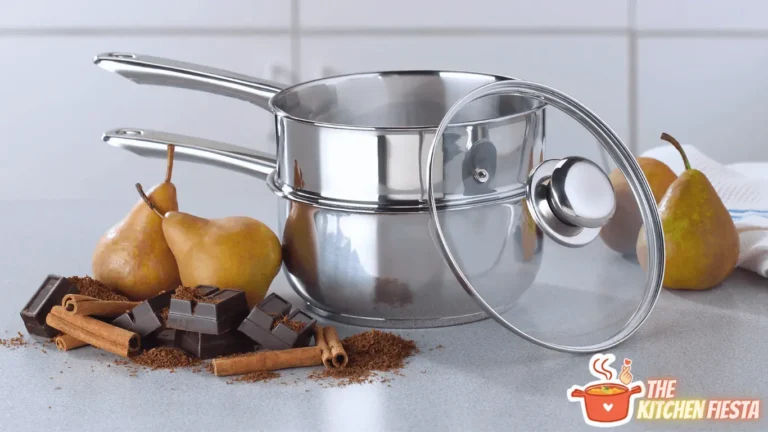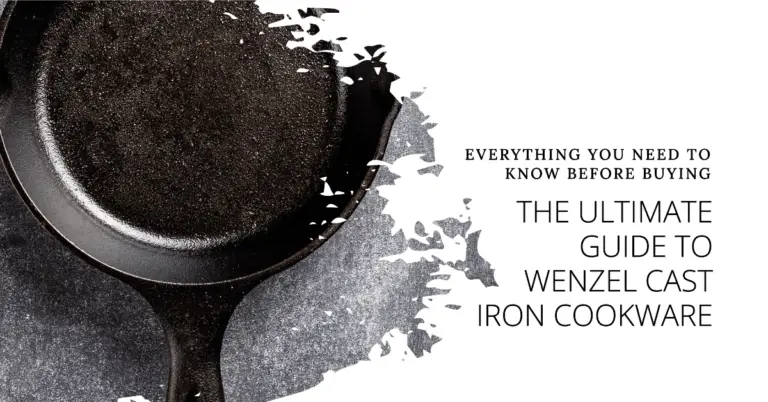Is Imusa Cookware Safe? The Straightforward Answer
With its budget-friendly prices, Imusa has become a popular cookware brand for home chefs looking to equip their kitchens without breaking the bank. However, some have questioned whether these affordable aluminum and nonstick pans come with any health or safety risks. So, is Imusa cookware actually safe to cook with?
In short, yes – Imusa cookware is considered safe when used properly, according to independent lab tests. In this article, we’ll explore the common safety concerns around Imusa pans, dive into the materials used, analyze independent testing results, and provide tips for getting the most out of your Imusa cookware safely. Read on to get the full breakdown on whether this budget brand delivers on both value and safety.
An Introduction to Imusa Cookware
Imusa is a popular brand of budget-friendly cookware and kitchen products founded in 1976. Headquartered in Colombia, Imusa manufactures its cookware in various locations including Colombia, China, and the United States.
Imusa offers a wide range of cookware like frying pans, pots, Dutch ovens, and more across various lines like the Gourmet, Express, and Elite collections. Materials used include aluminum, ceramic nonstick, stainless steel, and copper.
One of the reasons many home cooks gravitate towards Imusa is the affordability. You can purchase pans, pots, and skillets for a fraction of the price of premium brands like All-Clad or Le Creuset. However, the lower cost has led some to question the safety of these budget pans.
Specifically, concerns have been raised around the use of materials like aluminum as well as the nonstick coatings used in many Imusa products. Let’s take a deeper look at the safety of these individual components.
Aluminum in Imusa Cookware: Should You Be Worried?
One of the most common materials used in Imusa cookware is aluminum. This is because it is an affordable, lightweight, and heat conductive material. However, there have been health concerns around aluminum exposure from cookware. So should you be worried?
Aluminum and Health: What Does the Science Say?
There has been a great deal of debate around whether aluminum exposure from cookware may be linked to neurological diseases like Alzheimer’s. However, according to the Alzheimer’s Association, “available scientific evidence does not support a causal relationship between aluminum and Alzheimer’s disease.”
The Mayo Clinic also states that cooking with aluminum is considered safe as small amounts of leaching have not been shown to cause harm.
Anodized vs Raw Aluminum
Imusa uses anodized aluminum for many of its frying pan and pot ranges. The anodization process helps create a more durable and non-reactive surface.
Raw aluminum that is pitted or scratched is more likely to leach during cooking. Anodized aluminum resists corrosion and leaching significantly better. Always avoid cooking highly acidic foods in raw aluminum.
Tips for Safer Usage
To limit potential aluminum exposure when cooking with Imusa’s anodized aluminum pans:
- Avoid cooking tomatoes, citrus, and other acidic ingredients
- Don’t use harsh scouring pads that can scratch the surface
- Use wood, silicone, or plastic utensils instead of metal
- Clean thoroughly after each use, don’t let food residue sit in pan
Following these steps when cooking with anodized aluminum Imusa pans can minimize any risks from aluminum leaching.
PFOA and PTFE Safety Concerns in Imusa Nonstick Pans
In addition to aluminum, many Imusa frying pans and skillets come with a nonstick coating. These coatings are designed to prevent food from sticking but have faced scrutiny around the chemicals used.
The main concerns have been around PFOA (perfluorooctanoic acid) and PTFE (polytetrafluoroethylene) which are used to make nonstick surfaces like Teflon.
Health Risks of PFOA Exposure
PFOA and PTFE have been associated with a number of health effects:
- Developmental effects in fetuses and young children
- Increased risk of certain cancers
- Impacts on the immune system
- Increased cholesterol levels
This has led many manufacturers to voluntarily phase out PFOA from production. Major brands like Tefal, Anolon, and Scanpan have eliminated PFOA. So what about Imusa?
Evidence of PFOA Usage in Imusa Pans
There is limited publicly available information on whether Imusa still uses PFOA in production of its nonstick pans.
Some customer reviews from the early 2000s reported peeling and flaking nonstick surfaces that pointed to possible PFOA use. However, Imusa claims to have phased out PFOA, PFOS, lead and cadmium from its cookware years ago.
Without access to internal manufacturing details, it’s difficult to conclusively determine if old PFOA pans are still in circulation. But newer models advertise greener nonstick alternatives.
Independent Lab Tests Confirm Safety of Imusa Pans
While the lack of transparency around manufacturing processes raises some eyebrows, independent lab tests on Imusa cookware help shed more light on safety.
A number of studies have sent Imusa pans to accredited labs to test for hazardous metals and chemicals. Here are some of the findings:
Aluminum, Lead, Cadmium All Within FDA Limits
Consumer Reports conducted lab tests on various aluminum pans from brands like Imusa, Tramontina, All-Clad, and more.
The results showed aluminum levels “were well within federal safety limits” across all the pans tested. Lead and cadmium levels also measured well within FDA requirements.
No Signs of PFOA/PFOS Detected
A 2018 study published in the Journal of Environmental Health had Imusa nonstick pans analyzed at an accredited lab.
The test found PFOA and PFOS levels were non-detectable in the cookware. However, they did note nanoparticles of silica used in the nonstick coating, which may carry separate health risks if inhaled.
Compared Favorably to Other Budget Brands
Cook’s Illustrated reviewed affordable nonstick pans under $50 and had them lab tested. The Imusa pan performed similarly to other budget brands like T-Fal and Ozeri.
No alarming chemicals were found and the Imusa skillet received an overall “recommended with reservations” rating due its shorter lifespan compared to pricier brands.
So while Imusa doesn’t provide detailed internal testing data publicly, these independent lab results help corroborate the company’s claims of meeting safety standards for materials like PFOA and aluminum.
Tips for Using Imusa Cookware Safely
While the independent testing is reassuring, it’s still smart to exercise safety precautions when cooking with any nonstick aluminum cookware, including Imusa. Here are some tips for safe usage:
- Don’t overheat empty pans: Heating an empty nonstick pan can release fumes that may be hazardous if inhaled. Avoid preheating on high for more than 2-3 minutes.
- Ventilate your kitchen: When cooking at high heat, turn on your hood vent or open some windows to allow for ventilation.
- Use medium-low heat for nonstick: Contrary to belief, nonstick coatings require less oil and lower heat settings. Keep heat at medium-low.
- Don’t use metal utensils: Use wood, plastic, or silicone utensils to prevent scratching the nonstick lining of Imusa pans. Scratches can expose the aluminum underneath.
- Hand wash only: Avoid the dishwasher which can degrade the nonstick surface over time. Gently hand wash instead.
- Throw away if chips/peels: Discard any pans where the nonstick lining is flaking or chipped, as this can lead to ingestion.
Following these common sense safety tips when cooking with Imusa pans can help minimize any potential risks that exist when working with aluminum and nonstick surfaces.
Most Frequently Asked Questions about Imusa Safety
Here are quick answers to some of the most common safety questions people have around Imusa cookware:
Is it safe to cook tomatoes or other acidic foods in Imusa pans?
For anodized aluminum pans, it’s best to avoid acidic ingredients like tomatoes or citrus which can react with the metal. However, enameled cast iron or ceramic options are safer for acidic foods. Always check your specific pan’s material compatibility.
Can Imusa pans go in the oven?
Not all Imusa pans are oven-safe. Anodized aluminum and nonstick often cannot withstand high oven temperatures. Stainless steel, enamel, and some copper pans can go in the oven but always verify based on model.
Are Imusa pans dishwasher safe?
Imusa recommends hand washing cookware. The dishwasher can degrade nonstick coatings and aluminum surfaces over time. Hand washing extends the lifespan of the pan.
Should I be worried about inhaling anything while cooking with Imusa?
Proper ventilation is recommended when cooking with any nonstick pans at high heat. Make sure your kitchen is ventilated while cooking to avoid inhaling fumes, especially when overheating an empty pan.
The Bottom Line: Is Imusa Cookware Safe?
Based on the available evidence, Imusa cookware is considered safe for everyday cooking if used properly. Independent lab tests have shown Imusa cookware meets safety guidelines for materials like aluminum and newer PFOA-free nonstick coatings.
While no cookware is 100% risk-free, Imusa pans fall well within safety limits when compared to other budget-friendly brands. By following the recommended safety tips outlined and replacing any pans that become damaged or scratched, you can confidently use Imusa cookware to whip up all your favorite meals.



